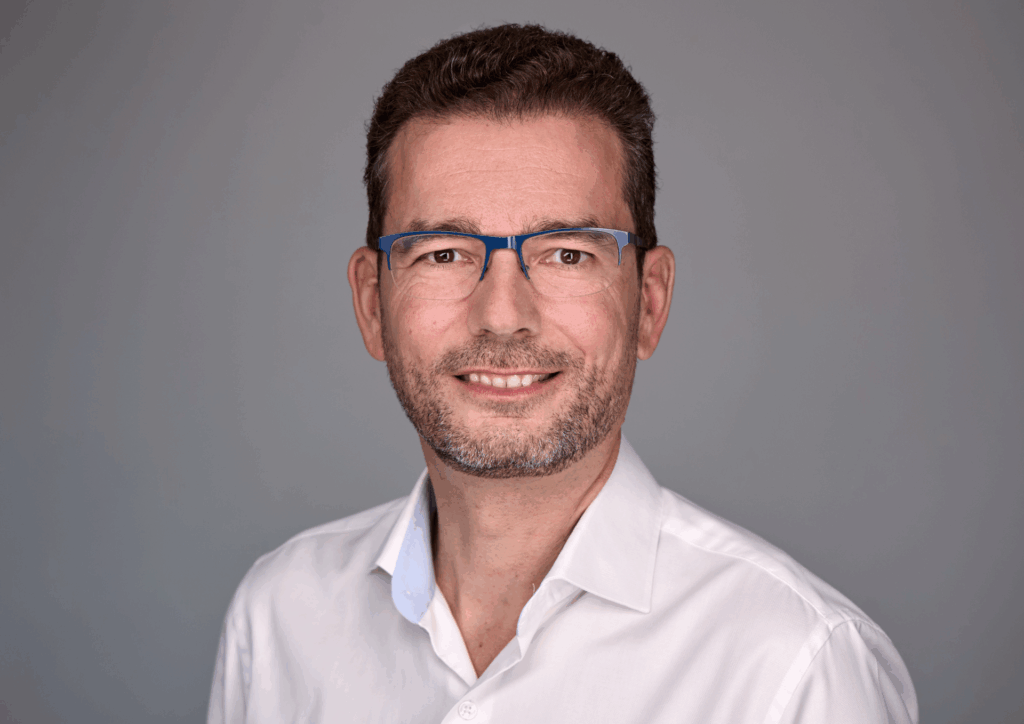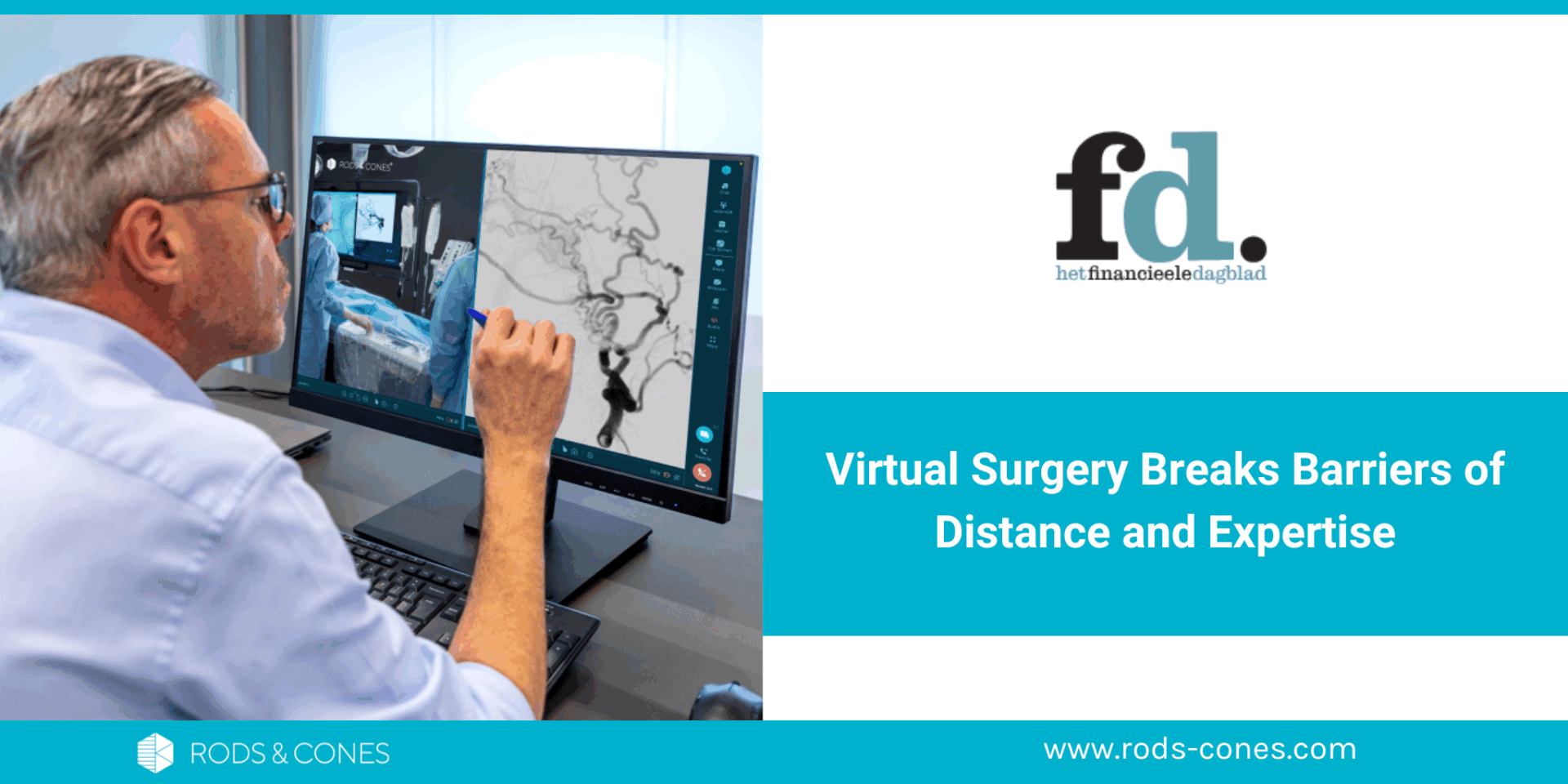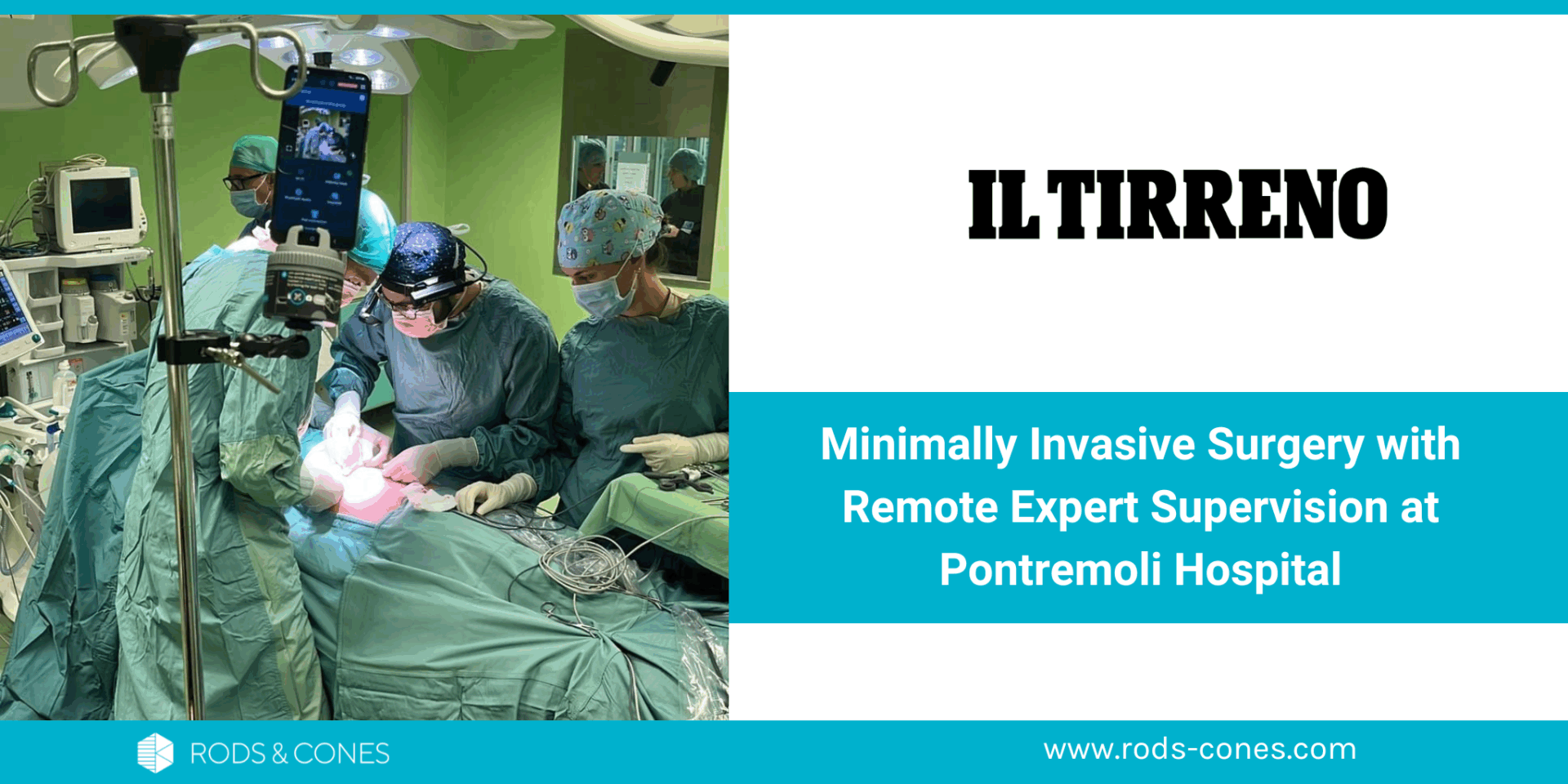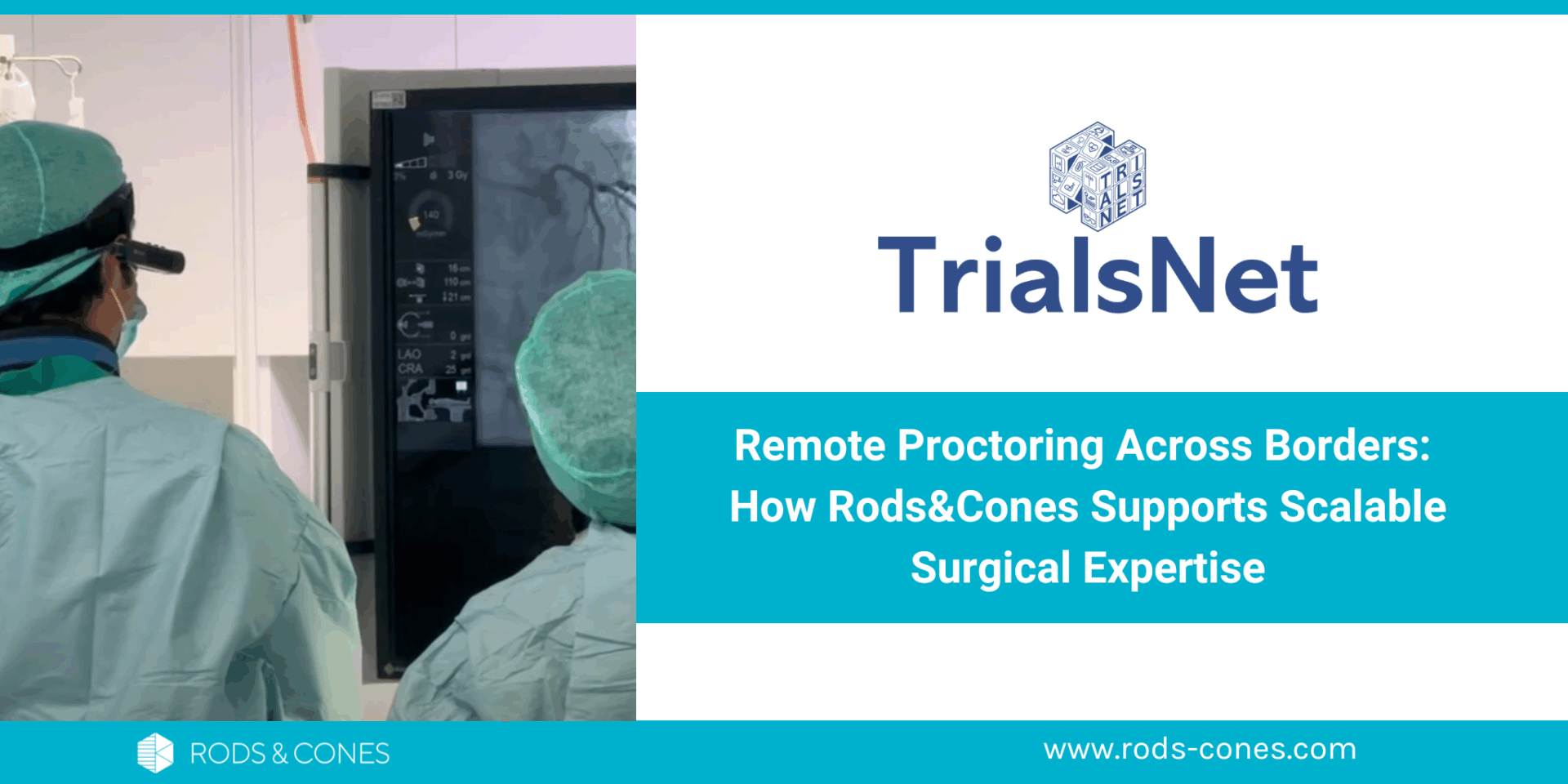A surgeon often stands mentally alone in the operating room. You can’t just open a book or consult a colleague. Your hands are tied, your movement is restricted, and the staff around you usually knows less about the procedure. Yet everything must go perfectly-one wrong cut or missed step can have life-threatening consequences.
A Fundamental Problem in Modern Medicine
This isolation in the operating room is a fundamental problem in modern medicine. While knowledge and expertise are unevenly distributed across the globe, surgeons are often deprived of the guidance that can mean the difference between life and death.
Bruno Dheedene, CEO of Rods&Cones, has made it his mission to address these issues. The Dutch medtech company develops advanced software that connects surgical knowledge in real-time, supported by smart glasses and video technology.
"Surgery is not rocket science," Bruno explains. "It's essentially about cutting and stitching. A general practitioner quickly learns how to suture or administer anesthesia. The real challenge is insight: knowing what you're doing, why you're doing it, and how to do it safely."

75,000 Surgeries and Global Reach
Rods&Cones’ technology offers an interactive live video connection for surgery, with ultra-low latency. This allows remote specialists to observe, communicate, and assist in high-quality-as if they were physically present in the operating room.
Using smart glasses, an external expert can literally see through the eyes of the operating surgeon.
The system visualizes everything the surgeon sees-crucial for minimally invasive procedures, which account for over 80% of surgeries.
The results are impressive:
- active in 109 countries
- and more than 2,000 hospitals, with over 75,000 surgeries performed using their technology.
"The feedback is that it works extremely well" says Bruno. "People tell us they can see the surgery better than if they were physically there."
This is due to the limited space around the operating table: in smaller operations, the incision is kept as small as possible, exactly in the surgeon’s field of view-making it difficult for others nearby to see what’s happening.
Revolutionizing Training with Virtual Support
A key application is in medical training. Besides the more than 30,000 hours of training for a surgeon, the work of an OR assistant also requires years of intensive education and hands-on experience. This training mostly happens on-the-job by standing next to experienced colleagues-an expensive and labor-intensive method.
"With our technology, you can virtually follow someone perfectly," says Bruno. "An expert can guide multiple people simultaneously, as they don't have to constantly monitor. Surgeons usually know what to do, but at crucial moments they can quickly ask for help."
This approach aligns with the Dutch healthcare system, where Rods&Cones is involved in a National Growth Fund project aimed at optimizing healthcare training-urgent due to aging healthcare staff and high dropout rates during training.
From Africa to the Frontlines
The impact goes well beyond Europe. In Africa, 17 million surgeries are not performed each year due to lack of medical expertise.
"That doesn't mean we can solve all of that," Bruno admits, "but we can make a real difference. Often, something could have been done if the person next to the patient had received instructions."
The company is also developing military applications, where during the “golden hour”-the crucial hour after an injury-expertise can be quickly brought to the frontline.
"Our technology allows a surgeon to guide a medic remotely, or support a general doctor in a field hospital with specialist advice, for example, from a neurosurgeon."
These military applications are increasingly relevant as evacuation becomes more difficult due to drones and modern warfare.
"Evacuation has a huge impact on firepower," Bruno explains. "A lot of people are involved who at that moment are no longer soldiers."
The Future
Bruno sees growth potential in emerging markets such as India and Nigeria, where distance makes their technology even more relevant.
"There are a lot of people there who can afford surgery, but surgical capacity is lacking. Our technology helps keep the expertise within the country."
He envisions a future where the world becomes surgically smaller, and doctors can easily share their expertise via a platform.
"We want to not only offer the technology, but also make the specialists themselves visible-like an Airbnb-style platform. That way, you don't need to know someone personally, but can simply indicate that you need help with a complex surgery."
The original article was written in dutch and has been translated into English
Source: here.




